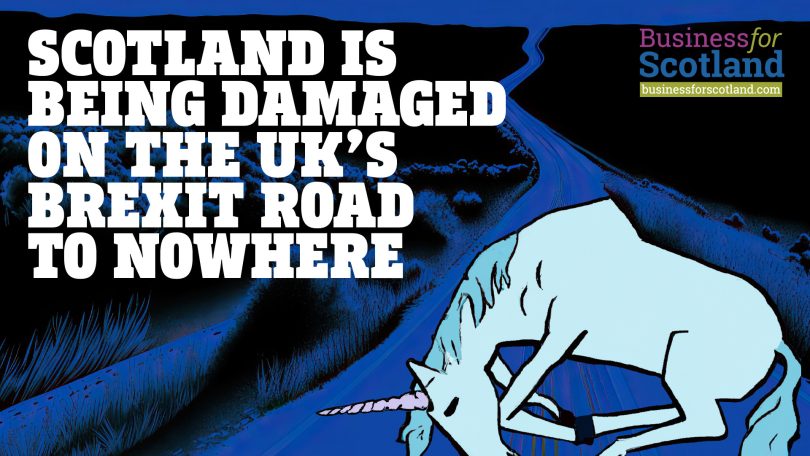From tomorrow – and again in April – the UK Government will start imposing a battery of border controls on agricultural trade with the EU. Fierce protests from businesses have delayed these controls five times but they will go ahead this time in order for Rishi Sunak to appease the right wing of his party. The Guardian reported recently that they will cost the economy £330m a year.
These new border checks and packaging rules will add to the woes facing Scottish businesses trying to import from the EU. Many small and medium sized businesses already find it very difficult to do this because of Brexit red tape.
Businesses who make food products using EU ingredients, speciality food shops, garden centres and even supermarkets will be impacted by the rules. They will push costs up and may create delays due to a shortage of vets to issue certificates. The Guardian reported that the UK might miss out on scheduled deliveries of meat from the EU because suppliers are concerned about possible delays.
Britain imports up to 70% of its fresh food from the EU in the winter months and about a third even in warmer months, with as many as 1,000 trucks daily arriving at its ports. Anything which impacts this vital trade has the potential to damage families as well as businesses.
Scotland is right at the end of the food chain in the UK – most imports travel through London so any issues with the supply of fresh produce are likely to be felt in Scotland first. Scots have seen that in the recent past because of Brexit delays.
What are the new checks?
Initially, EU exporters of animal and plant products, such as eggs, dairy, meat and berries, will be required to present Export Health Certificates (EHCs) to British authorities. Actual physical checks on shipments will only start on April 30, followed by a requirement for safety and security certificates from Oct. 31.
There is a lack of clarity about how the regulations will be imposed. “Will the government enforce by preventing material which doesn’t have an electronic EHC from entering the GB border? Or does it let stuff in and then simply enforce through contact with the companies involved afterwards? The government isn’t telling us what they’re going to do.” William Bain, head of trade policy at the British Chambers of Commerce, told Reuters.
The British Retail Consortium and the Fresh Produce Consortium have also expressed concern. The British Meat Processors Association is worried that a lack of veterinary capacity in the EU might slow down health certification.
Brexit is making the UK balance of payments worse
After businesses expressed concern over the impact new border controls starting in January 2024 will have on imports from the EU, Make UK also warned that the new measures were likely to create “additional friction.”
The FT reported last week that the UK’s balance of payments with the EU has gotten seriously worse since Brexit. The gap between exports and imports is now more than £100 billion – and a bad balance of payments leads to inflation and a weaker pound.
The FT’s economics editor Martin Wolf wrote: “Brexit was in fact certain to go wrong, because it was based on false premises. Countries cannot be fully sovereign in trade, since it involves at least one counterpart. Thus, the rules of the single market were created because the alternative was multiple different regulatory regimes and so costlier (and smaller) trade.”
That is one reason why more than half of Scots believe that Scotland would be better off outside the UK and inside the EU.
More Brexit issues loom over trade
The problems of Brexit lumber on. The UK Government’s Northern Ireland arrangements mean Scottish businesses exporting meat and dairy will have to add the words “Not for EU” to all packaging. Because of the difficulty and expense of creating two different packaging streams, many smaller businesses are likely to give up on exporting to the EU at all.
From October 2024, all meat and dairy products sold right across the UK will have to include the labels – even if there is no intention to ever send the products to Northern Ireland. That will apply to even more products from October 2025 and it applies to imports as well as food produced in the UK.
Scotland’s Food and Drink Federation argues this poses “a significant risk” and a new barrier to trade with the EU. Its report concluded that the small and medium sized businesses that make up the vast majority of this important sector simply cannot absorb the cost of two packaging streams.
The UK is on the road to nowhere – Scotland wants to go its own way
The UK economy continues to suffer from Brexit damage in many areas – the slump in exports, the higher cost of imports, the UK’s skewed balance of payments, the loss of structural funds, the seasonal workforce and science funds.
But within the UK, the English electorate has full sway. Scotland didn’t vote for Brexit but that didn’t matter to Westminster. Scotland is being damaged – but the UK political parties don’t have anything to offer. The only path for Scotland to rejoin the EU is through independence.








